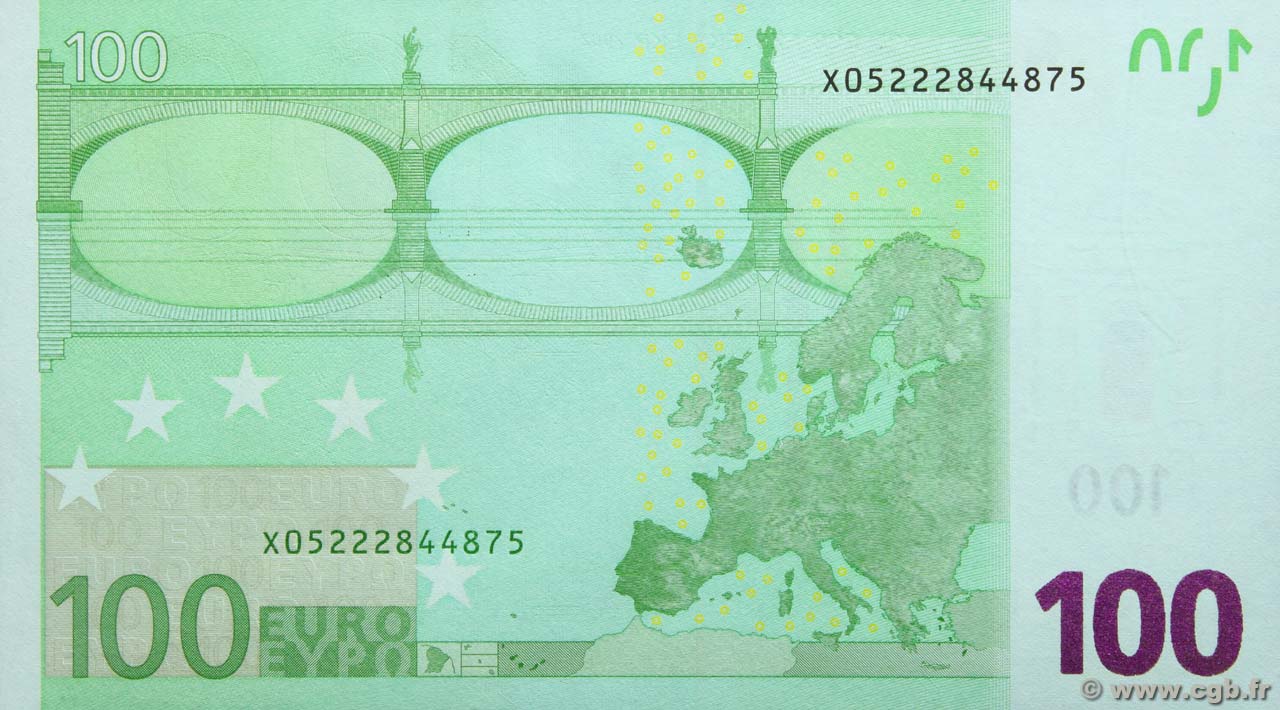
100 Euros EUROPA 2002 P.05x b94_6955 Banknotes
euro, monetary unit and currency of the European Union (EU). It was introduced as a noncash monetary unit in 1999, and currency notes and coins appeared in participating countries on January 1, 2002. After February 28, 2002, the euro became the sole currency of 12 EU member states, and their national currencies ceased to be legal tender.
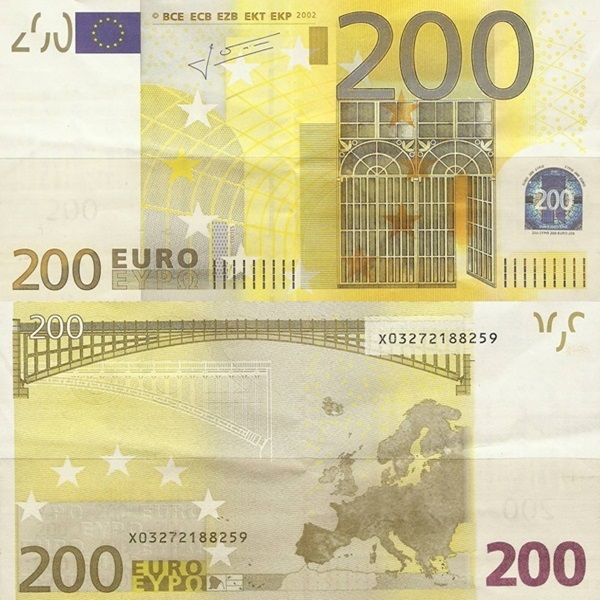
Banknotes Catalog List of banknotes for 2002 Issue 200 Euro (Signature JeanClaude Trichet
Detailed information about the coin 10 Euro (2002 Series), Eurozone, with pictures and collection and swap management: mintage, descriptions, metal, weight, size, value and other numismatic data. They symbolise the European spirit of openness and cooperation. Banknote show architectural style from romanesque period in Europe's history, but.

200 Euro 2002 Z (Belgium), 2002 Issue 200 Euro (Signature Willem F. Duisenberg) European
Detailed information about the coin 50 Euro (2002 Series), Eurozone, with pictures and collection and swap management: mintage, descriptions, metal, weight, size, value and other numismatic data. They symbolise the European spirit of openness and cooperation. The banknote shows the architectural style from the renaissance period in Europe's.
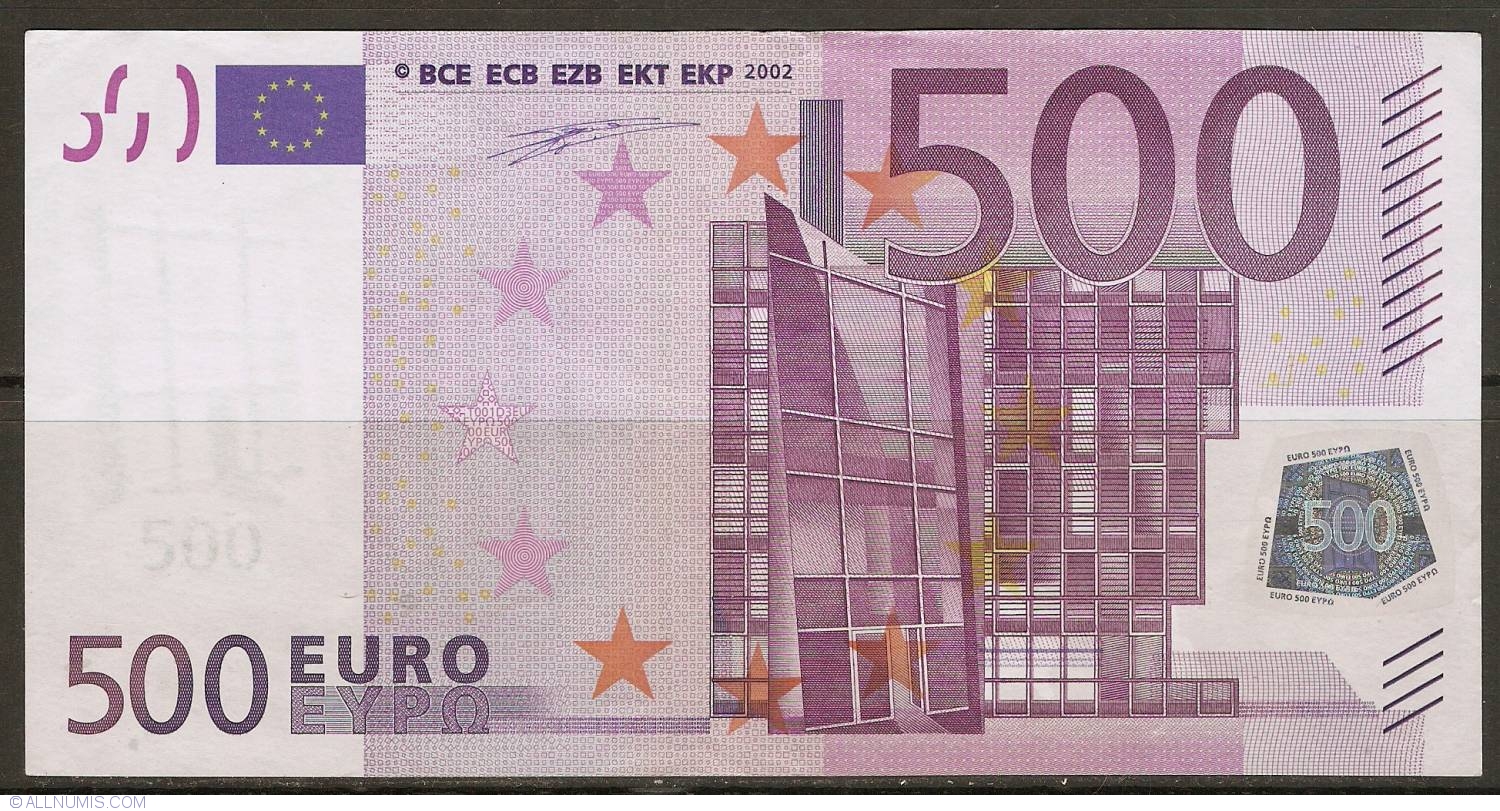
500 Euro 2002 Z (Belgium) , 2002 Issue 500 Euro (Signature Willem F. Duisenberg) European
Detailed information about the coin 5 Euro (2002 Series), Eurozone, with pictures and collection and swap management: mintage, descriptions, metal, weight, size, value and other numismatic data. They symbolise the European spirit of openness and cooperation. The banknote shows the architectural style from the classical period in Europe's.
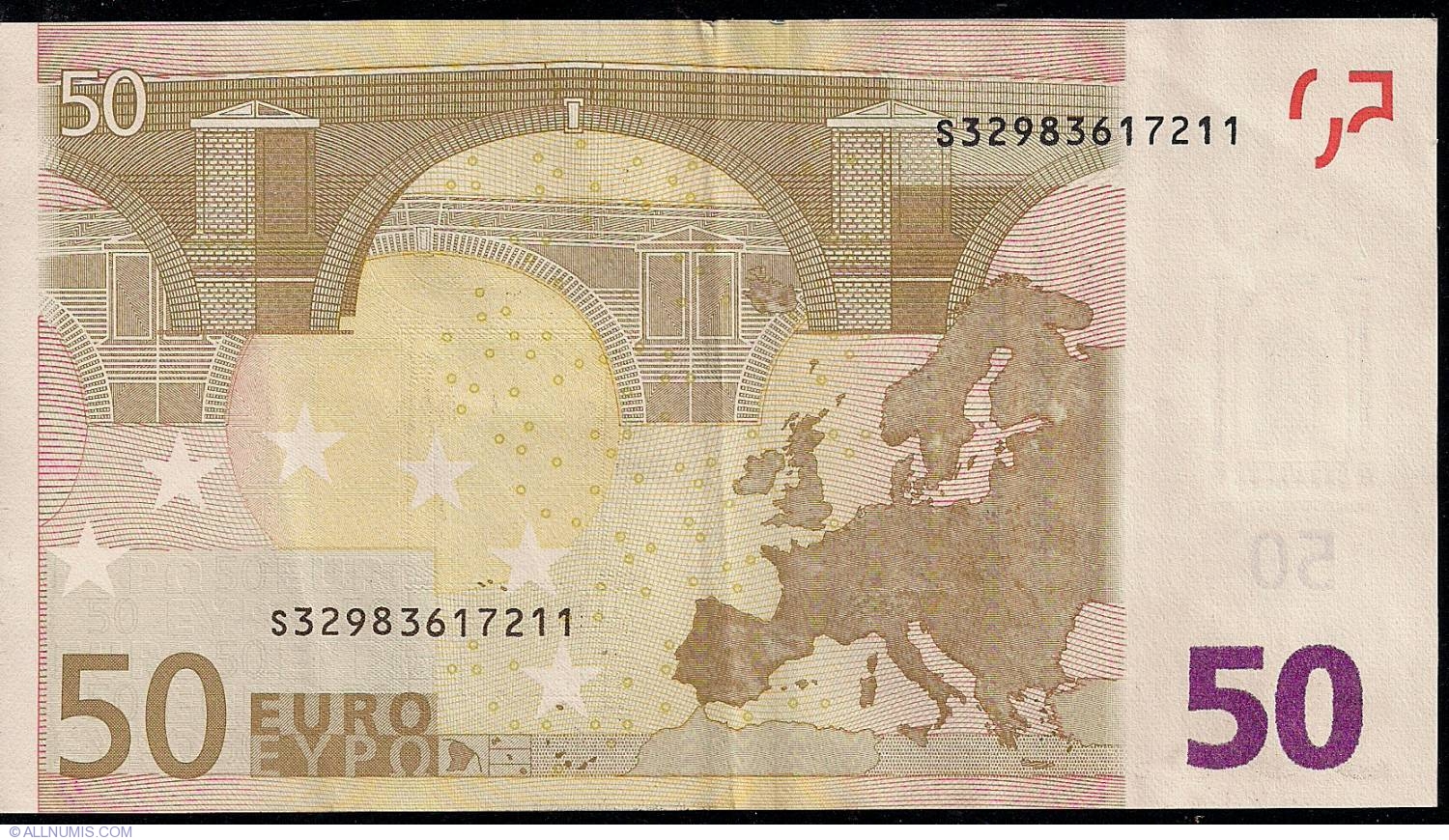
50 Euro 2002 S (Italy), 2002 Issue 50 Euro (Signature JeanClaude Trichet) European Union
The fifty euro note ( €50) is one of the middle value euro banknotes and has been used since the introduction of the euro (in its cash form) in 2002. [6] The note is used by some 343 million Europeans and in the 25 countries which have the euro as their sole currency (with 23 legally adopting it). In July 2023, there were about 14,523,000,000.
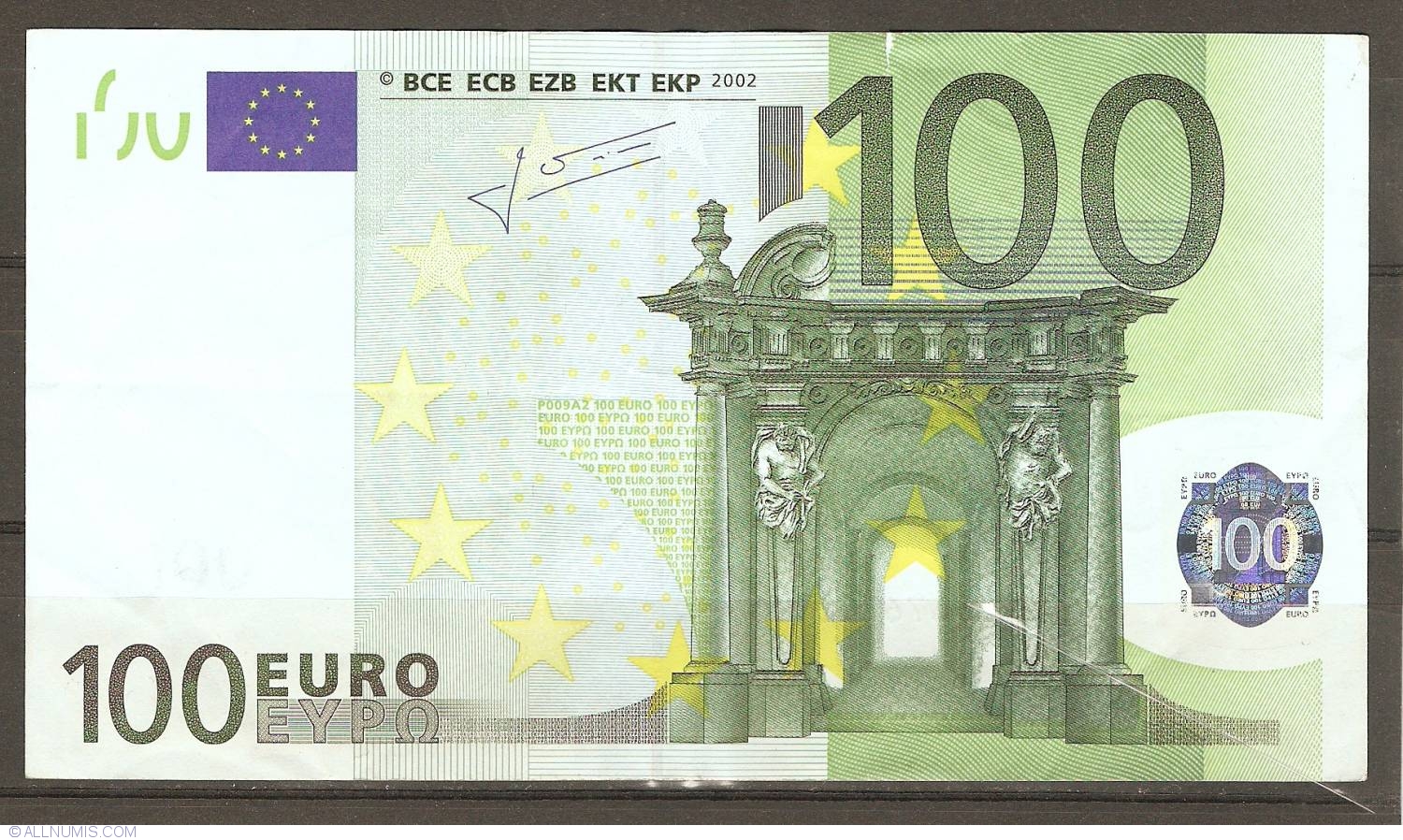
100 Euro 2002 X (Germany), 2002 Issue 100 Euro (Signature JeanClaude Trichet) European
Initial changeover (2002) The cash changeover in 2002 was a significant event in Europe's history and a major technical achievement. On 1 January that year euro banknotes and coins were introduced in 12 countries with a total of population of 308 million. It was the world's largest ever monetary changeover, involving the banking sector.
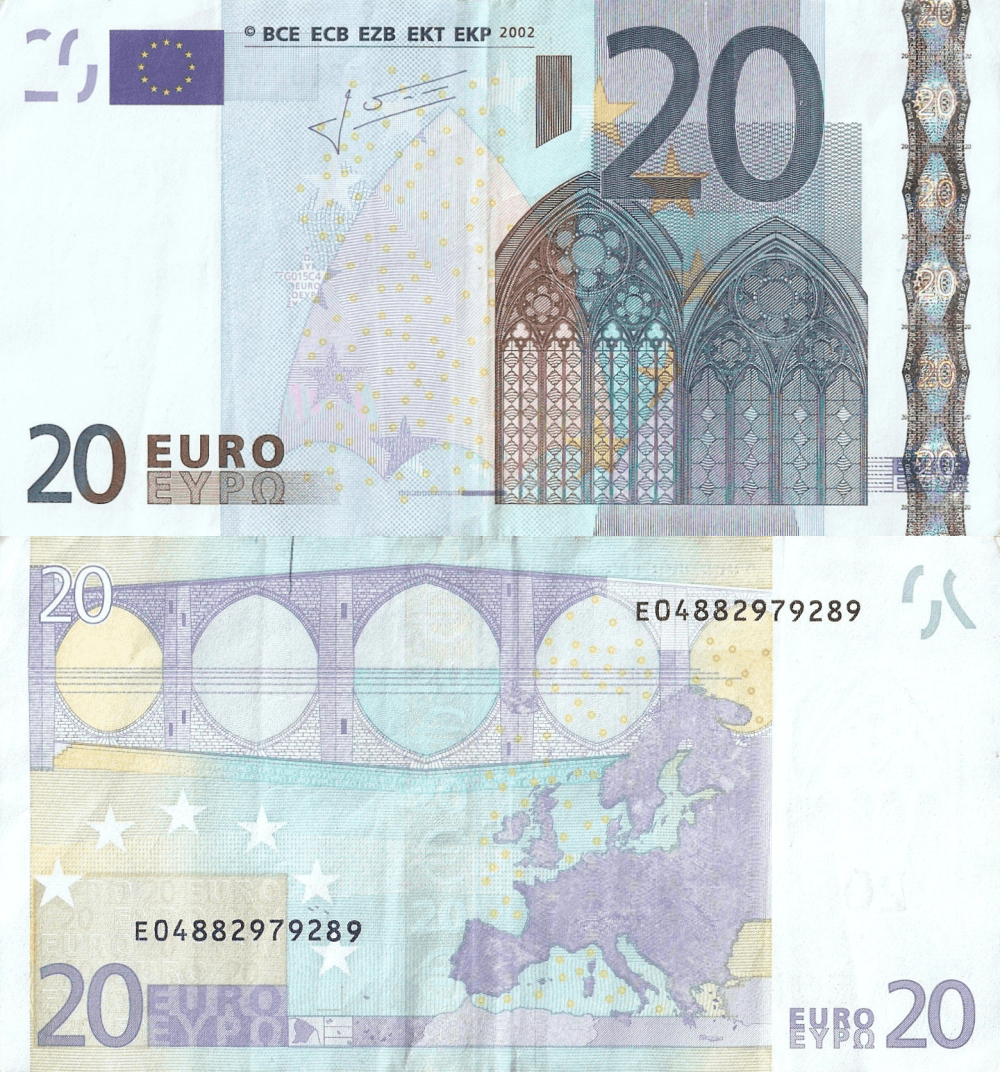
Banknote World Educational > Euro/European Union > Euro/European Union 20 Euro Banknote, 2002, P300
The ten euro note (€10) is the second-lowest value euro banknote and has been used since the introduction of the euro (in its cash form) in 2002. The note is used in the 25 countries which have it as their sole currency (with 23 legally adopting it); with a population of about 343 million. In July 2023, there were approximately 3,033,000,000 ten euro banknotes in circulation around the eurozone.
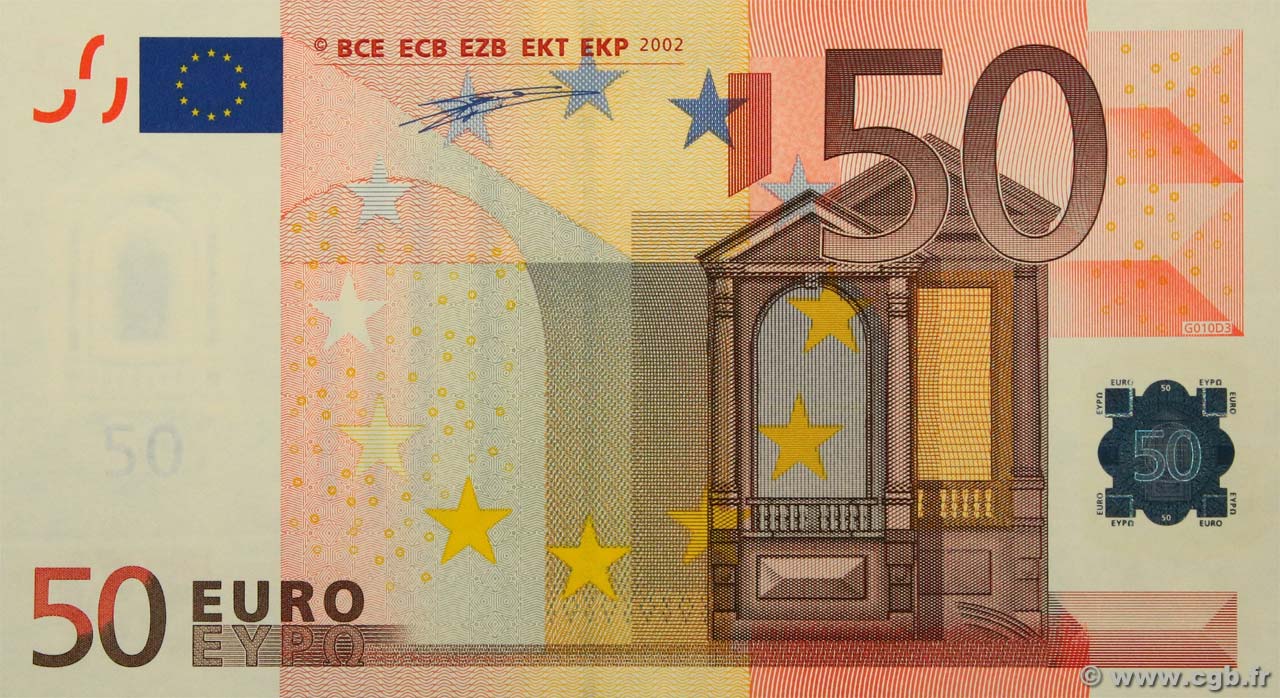
50 Euro EUROPA 2002 P.04p b94_4933 Banknotes
Type 2002 euro notes 1155 (without charge) 79 (with charge) Type Europe euro notes 640 (without charge) 160 (with charge) Sell on eNotesPrice in 3 steps (for paid members only): 1 Estimate your euro note. 2 Add your note in your collection. 3 Sell your current ticket in your collection.
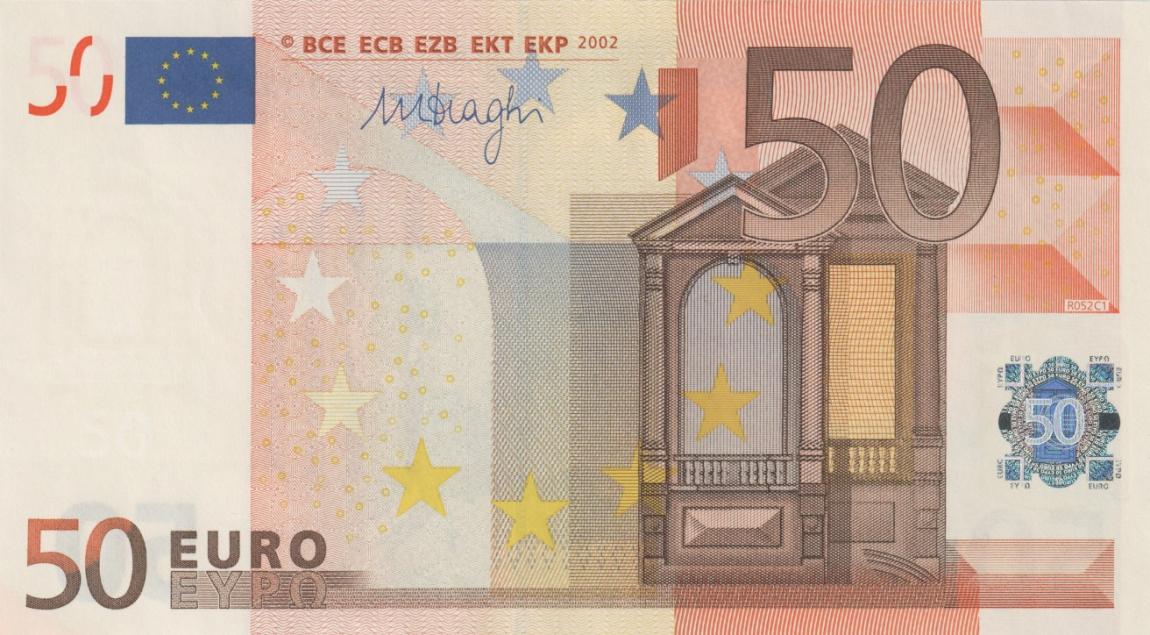
> European Union p17e 50 Euro from 2002
THE EURO BANKNOTES AND COINS. Since 1 January 2002 the euro banknotes and coins have been part of everyday life for over 300 million people in the euro area.This leaflet depicts the seven euro banknotes and the eight euro coins, including their security features.The banknotes - inspired by the architectural styles of seven periods in Europe.
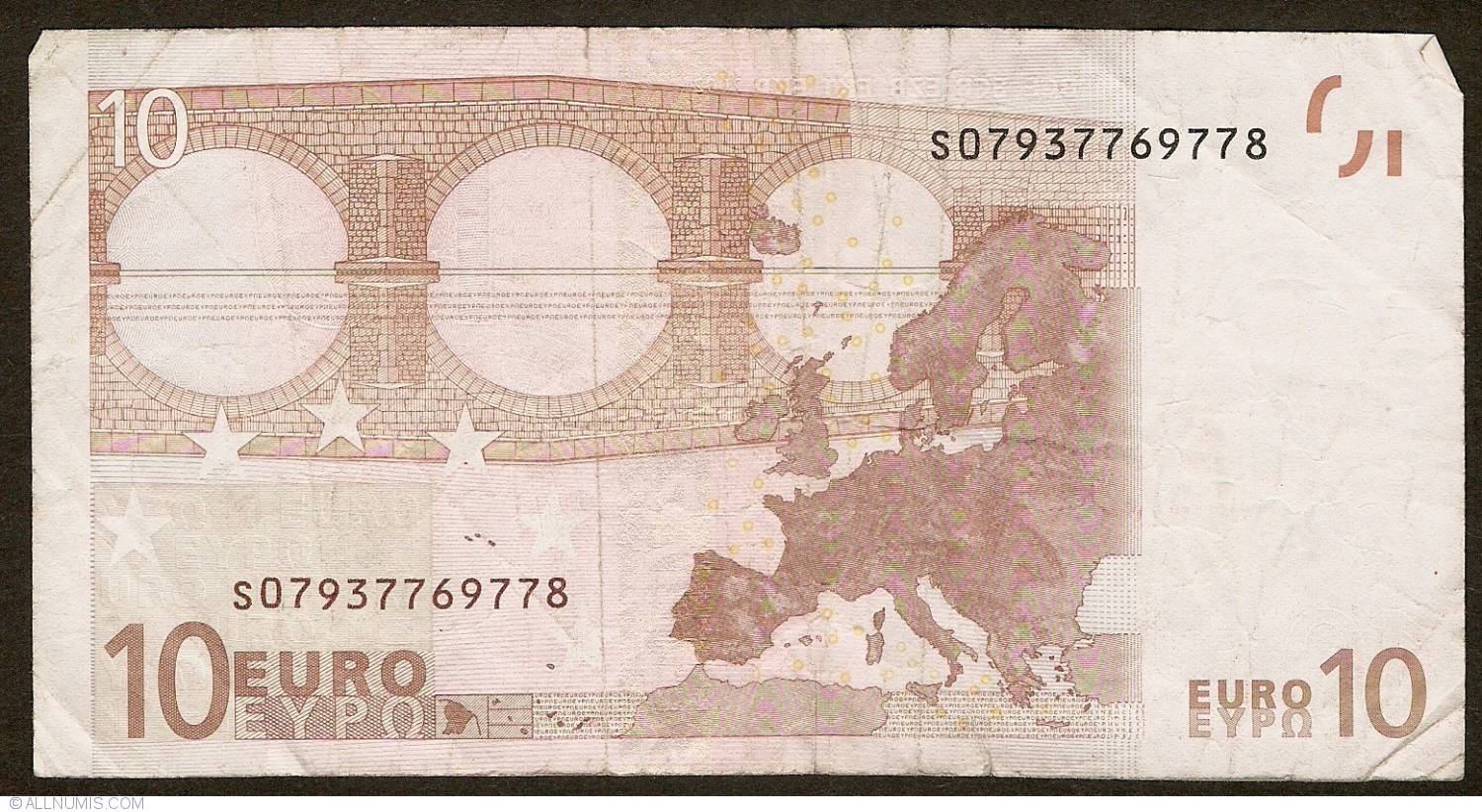
10 Euro 2002 S (Italy), 2002 Issue 10 Euro (Signature JeanClaude Trichet) European Union
The First Series of Euro banknotes from €5 to €500, issued since 2002, is being replaced by the newer set of euro banknotes from €5 to €200. Are the old Euro banknotes still valid, and how can you exchange them?. The European Central Bank has decided not to include a €500 euro banknote in the Second Series of Euro banknotes. The.
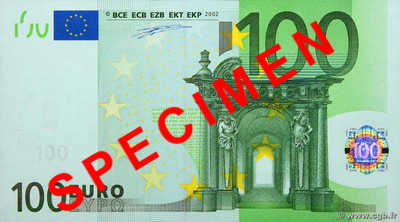
100 Euros EUROPA 2002 P.05x b94_6951 Banknotes
The first series of euro banknotes was originally issued in 2002 when the euro was introduced. It comprises seven different denominations: €5, €10, €20, €50, €100, €200 and €500.. Like all denominations of euro banknotes, the €500 note will always retain its value and can be exchanged at any national central bank in the euro.

> European Union p10e 20 Euro from 2002
Current banknotes. There are two series of euro banknotes. The first series comprises seven different denominations: €5, €10, €20, €50, €100, €200 and €500. The second, also known as the Europa series, consists of six denominations, as we decided to stop the issuance of €500 banknotes. Denominations, design and security features.
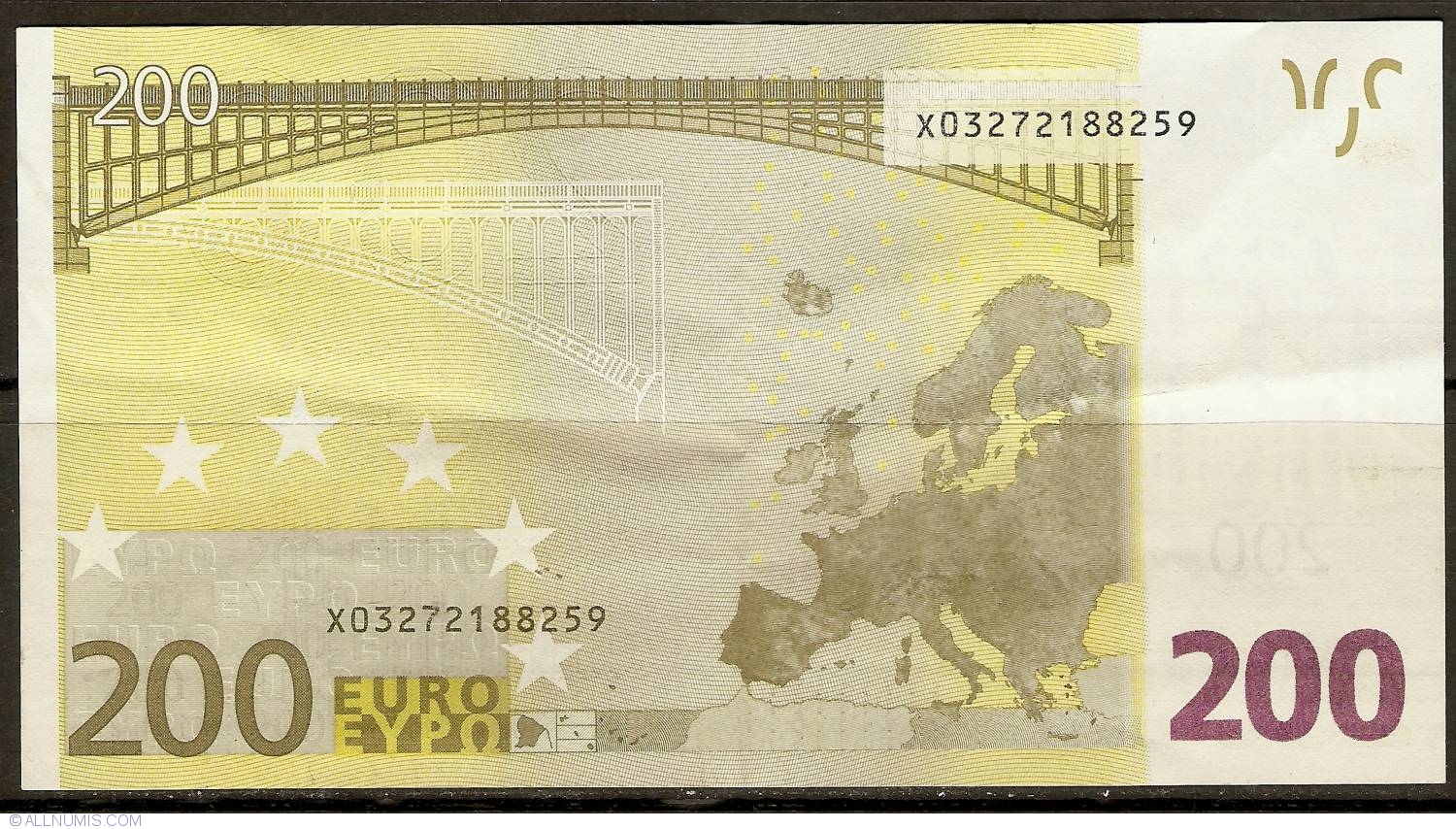
200 Euro 2002 X (Germany), 2002 Issue 200 Euro (Signature JeanClaude Trichet) European
Detailed information about the coin 100 Euro (2002 Series), Eurozone, with pictures and collection and swap management: mintage, descriptions, metal, weight, size, value and other numismatic data. They symbolise the European spirit of openness and cooperation. The banknote shows the architectural style from the Baroque and Rococo period in.
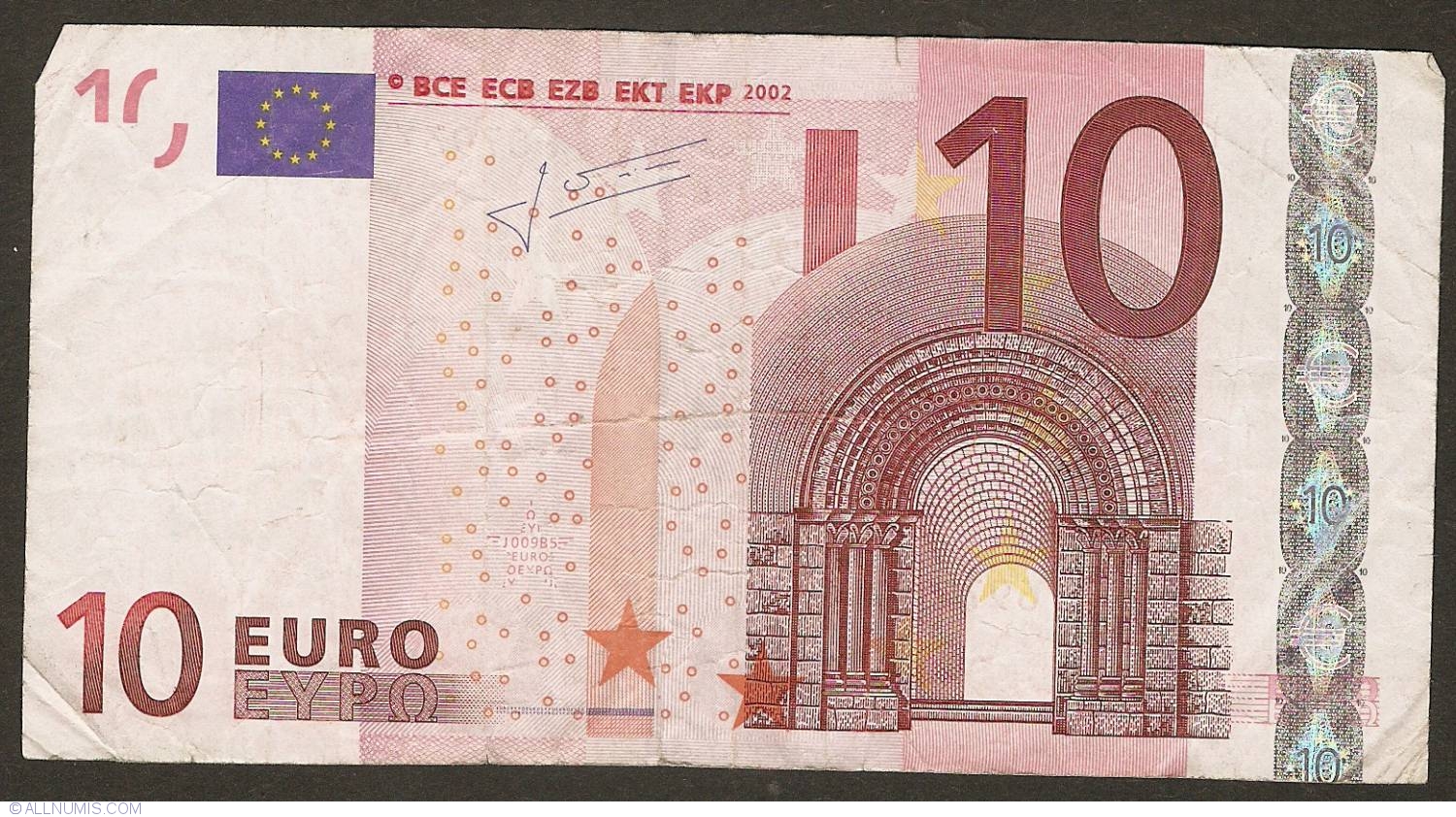
10 Euro 2002 S (Italy), 2002 Issue 10 Euro (Signature JeanClaude Trichet) European Union
The two hundred euro note (€200) is the second highest value euro banknote (and the highest value banknote in production) and has been used since the introduction of the euro (in its cash form) in 2002. The note is used in the 25 countries that have the euro as their sole currency (with 23 legally adopting it); with a population of about 343 million.

5 Euro Banknote (Five Euro / 2002), Obverse & Reverse YouTube
Euro banknotes from the Europa series (since 2013) Euro banknotes from the first series (The Ages and Styles of Europe) (2002-2013). Banknotes of the euro, the common currency of the eurozone (euro area members), have been in circulation since the first series (also called ES1) was issued in 2002.They are issued by the national central banks of the Eurosystem or the European Central Bank.
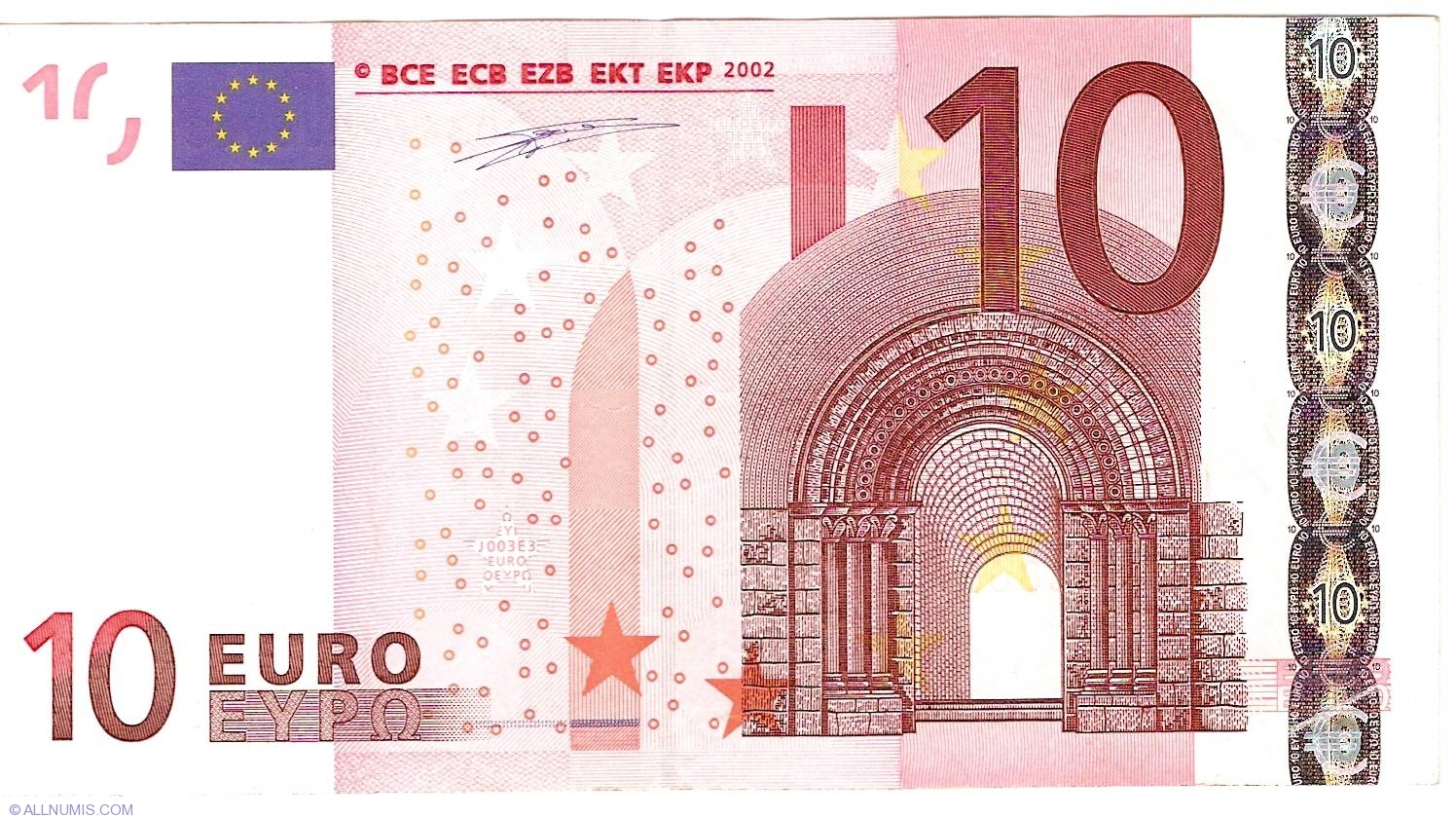
10 Euro 2002 S (Italy), 2002 Issue 10 Euro (Signature Willem F. Duisenberg) European Union
20 years of euro bank notes and coins. The creative thinking behind the euro. THE EURO SYMBOL. Inspired by the Greek letter epsilon (€) it is a reference to the cradle of European civilization; Parallel lines signify stability of the euro; Stands for the first letter of the word "Europe" in the Latin alphabet; 347 million: number of Europeans (in 20 euro area countries) who use the euro